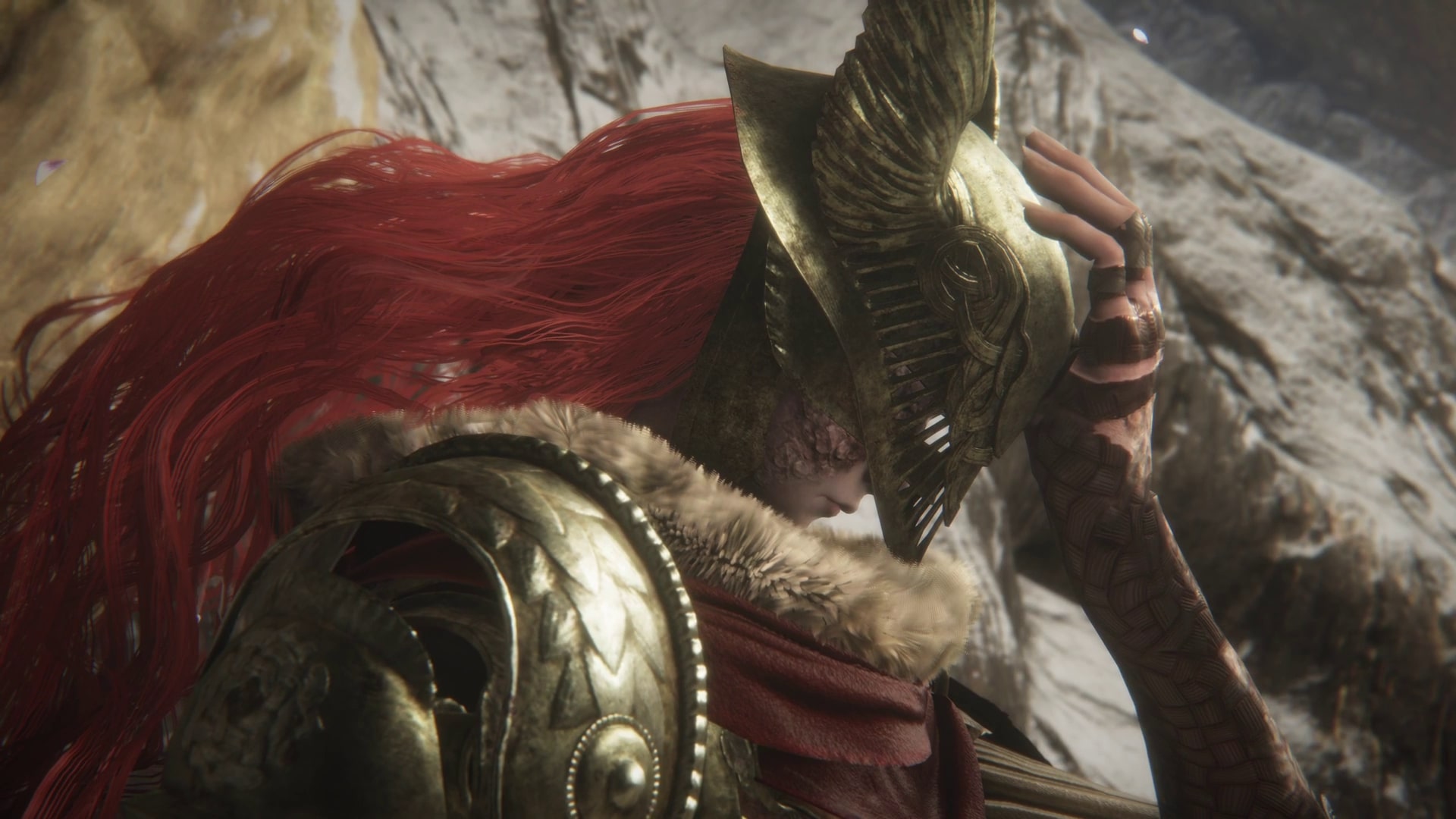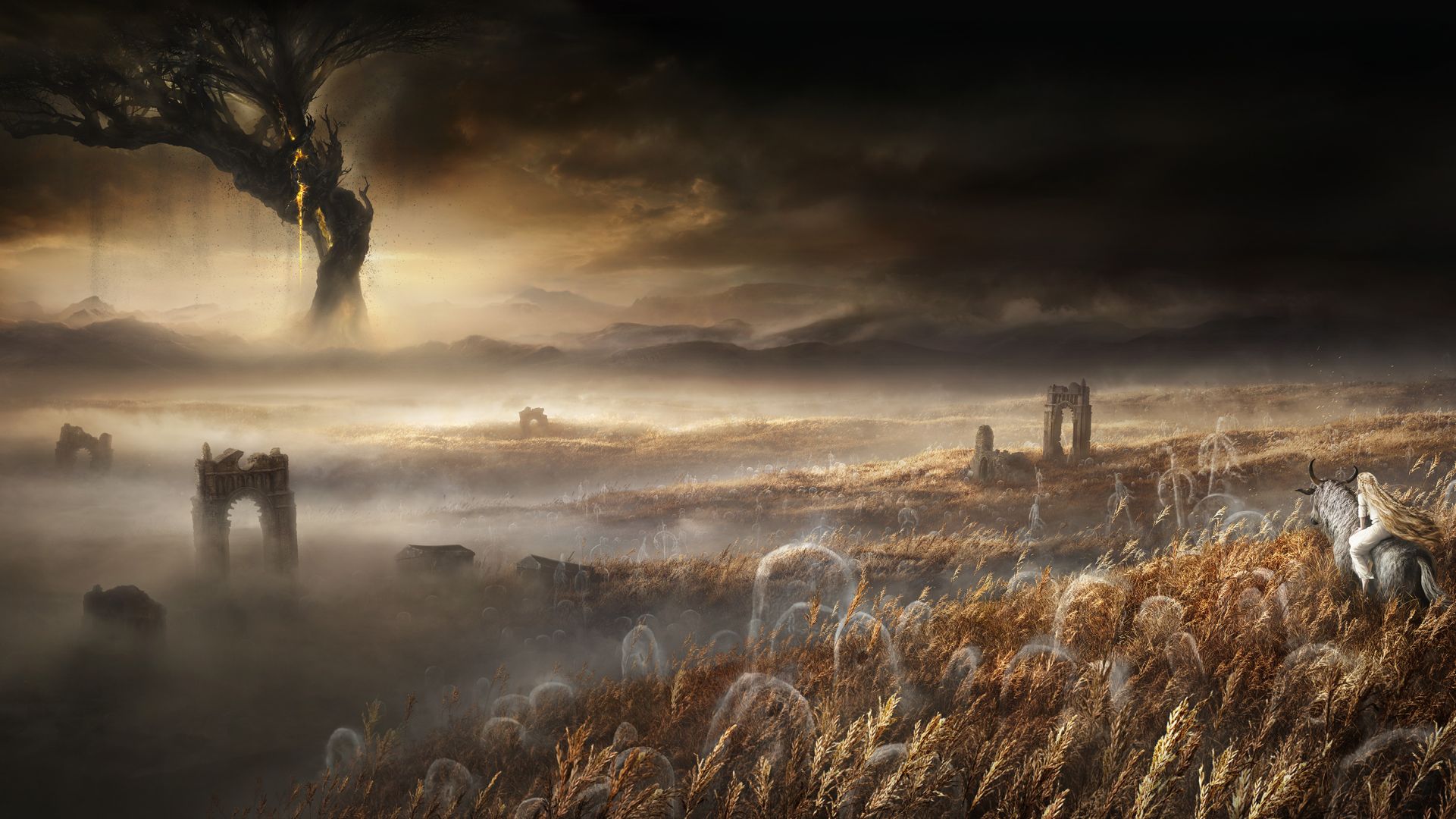Shadow of the Erdtree changes everything we thought we knew about Elden Ring’s story
[ad_1]
Miquella is missing in the base version of Elden Ring, but his shadow looms large throughout the Lands Between. You hear whispers of the fair-headed demi-god everywhere, from the wilting lilies lining Elden Ring’s golden path, to history attached to iconic pieces of gear. Malenia calls Miquella the most “fearsome” Empyrean of them all, a description that seems unthinkable after most players barely survive the rot goddess to begin with. Shadow of the Erdtree lets us catch up to the Miquella of myth – and in doing so, we realize nearly everything we believed to be true is wrong.
Though we never meet Miquella in Elden Ring, his influence is omnipresent. Outcasts and undesirables all seek the Haligtree, a location that houses Miquella’s attempt to create a fairer version of the Golden Order. An entire faction in the game is dedicated to Miquella’s scheme to revive his older brother Godwyn through a ritual involving an eclipse. When we explore Mohg’s palace, we discover that the horned Omen has stolen Miquella’s body in the name of communing with a bloodthirsty outer god. Through bits and pieces, we also learn that Malenia is only alive because of Miquella, who fashioned a needle that stops his sister’s rot disease from spreading further.
Then there are rumors of a merciful holy one named Saint Trina, a deity that saves people from suffering by offering them an intoxicating deep sleep. While never confirmed by the initial game, Trina and her dedication to the damned bears many similarities to Miquella, a fact that led many theorists to believe they might be one and the same. Overall, the picture Elden Ring paints of Miquella is an angelic one; someone who, unlike nearly everyone else in the game, seems to be driven by love and compassion.
Revise, Tarnished

Shadow of the Erdtree shatters the illusion completely, though it’s not evident at first. Initially, the player is greeted in the expansion by a cadre of his followers, who refer to the youthful demi-god as “Kindly Miquella.” These disciples want to follow in Miquella’s footsteps both out of a sense of duty to their martyr and also as a pilgrimage that can reinforce their beliefs.
Then, Miquella’s rune breaks – and the enchantment disappears. Suddenly, everyone in the group realizes they’ve been charmed into believing in someone with a deep capacity for cruelty. Sir Ansbach, who is initially devoted to the cause, calls Miquella a “monster” who makes his “blood run cold.” Somehow, the Empyrean made Ansbach forget that he threatened Miquella’s life in an attempt to free Mohg, his master, from the demi-god’s spell. “Pure and radiant, he wields love to shrive clean the hearts of men,” Ansbach tells the player, adding that “there is nothing more terrifying.” This dark declaration is reinforced later when the player finds that Saint Trina has been cast into an unreachable abyss by Miquella. It’s a turn of events so cruel, the patron saint is disfigured and barely alive.
By the time the player finds out that Mohg was a victim all along, and that Miquella sacrificed the Omen’s soul in an attempt to revive his half-brother, the noble intention behind it all is barely traceable. The Miquella we confront still wants to evoke an age of compassion, but his ruthlessness forces the player to reconsider everything leading up to that point. Where once Miquella appeared to be everything Marika failed to be when she instilled “order” through genocide, the expansion posits that they’re nearly identical when it comes to murdering innocents. If anything, the player walks out with more empathy toward Marika, who ascended to godhood after the decimation of her village.

Meanwhile, Miquella’s reputation darkens considerably. Once the player beats the expansion, they acquire a set of armor belonging to a young Radahn. Upon closer inspection, the lore of the helm claims that Malenia informed Radahn of his eventual fate at the hands of Miquella.
Many players finished Shadow of the Erdtree with a bit of confusion, because the Radahn consort twist seems to come out of left field. But it appears that FromSoftware was planning Miquella’s villain arc all along. Eagle-eyed players have pointed out that the trailer that introduced Elden Ring to the world carried this secret all along. It’s subtle, but if you look closely, you can catch Malenia’s lips moving before she activates her devastating scarlet rot bloom. Presumably, this is the moment referred to in the flavor text of Radahn’s armor.
The revelation is explosive in a way that casts everything into doubt. If Miquella tricked Mohg, a family member, who is to say he was loyal to Malenia, his twin? Did Malenia give into the scarlet rot because it was truly the only way to beat Radahn, or because she might be one of the many ties that Miquella has to shed before he can ascend to godhood? And the most unsettling uncertainty of all: where does this leave the player, who is responsible for many of the events that made Miquella’s plans possible?
Elden Ring: Shadow of the Erdtree is currently available for the PS5, PS4, Xbox Series X/S, Xbox One, and PC via Steam. If you’re all tuckered out of the Lands Between, you can always check out our list of games like Elden Ring.
[ad_2]











